
Germany Work Permit & Visa Guide for Qatar Residence
Determine Which Visa You Need For
EU/EEA/Swiss Citizens
No work permit required
Residence Registration:
For Non-EU/EEA Citizens
Work Visa
EU Blue Card
Job Seeker Visa
Types of Work Visas for Non-EU Nationals .
Employment Visa (for Regular Workers)
This visa is for foreign nationals who have secured a job in Germany, but it is not specifically for high-skilled professionals.
Requirements
- Job offer from a German
- Qualifications: Typically, you need to have at least a vocational qualification or a university degree.
- Labor Market Test: Your employer must demonstrate that no qualified candidates from Germany or the EU/EEA are available for the position.
Application Process
- Secure a job offer: You must have a formal job offer from a German
- Employer submits a request: Your employer applies for a work permit with the Federal Employment Agency (Bundesagentur für Arbeit), demonstrating that the position cannot be filled by an EU citizen.
- Apply for a visa: Once approved, you apply for a work visa at the German embassy or consulate in your home country.
- Residence Permit: Upon entering Germany, you will need to apply for a residence permit for employment purposes at the local Foreigners’ Office (Ausländerbehörde).

EU Blue Card
Requirements:
- University degree or recognized
- Job offer that meets the minimum salary threshold (approximately €56,400 per year or €43,992 in shortage occupations like IT, engineering, mathematics, and natural sciences).
Health insurance and proof of accommodation in
Application Process:
- Find a qualified job: You need a job offer that meets the salary and qualification
- Submit application for a Blue Card: Apply for the Blue Card at a German embassy or consulate, or at the Foreigners’ Office once in Germany.
- Receive your Blue Card: If approved, you will receive the EU Blue Card, which allows you to live and work in It’s typically valid for 1-4 years.
Advantages of the Blue Card:
- Spouses can work in Germany without needing a separate work
- After 33 months of employment (or 21 months with a good level of German language skills), you can apply for permanent residency.
- Free movement within the EU after two years of residence in Germany.
Job Seeker Visa for Qatar Residents
This visa allows you to enter Germany for six months to search for a job. It’s intended for individuals who have the qualifications needed for skilled work in Germany.
Requirements:
- A university degree or recognized professional
- Proof of sufficient funds to support yourself during your stay (usually around €1,000 per month).
- Health
- Proof of professional experience (optional but beneficial).
Application Process:
- Submit application: Apply for a job seeker visa at the German embassy or consulate in your home country.
- Travel to Germany: After visa approval, you can enter Germany and look for a
- Secure employment: Once you find a job, you will need to apply for a work visa or residence
Important Notes:
– This visa does not allow you to work until you secure a job.
– If you find a job within six months, you can convert the visa to a work permit.

Freelance Visa (Freiberufler)
Requirements:
- Proof of sufficient income to support yourself.
- Health insurance.
- A viable business plan and contracts from German clients.
Application Process:
2. Submit application: Apply for the freelance visa at the local Foreigners’ Office in Germany.

Important Documentation
- Valid passport.
- Job offer letter or employment contract.
- Proof of qualifications (degrees, diplomas, certificates).
- Proof of health insurance (public or private).
- Proof of financial means to support yourself.
- Passport-sized photographs.
- Visa fee (varies by visa type and nationality).
Work Visa Fees
- Residence permit fee: Around €100-€150 for most work permits.
- EU Blue Card fee: €140-€200 depending on the type and duration.
Rights & Working Conditions in Germany
- Salary: The minimum wage in Germany is €9.60 per hour (as of 2024), though many industries offer significantly higher salaries.
- Social Security: Employees in Germany are covered by social security, which includes healthcare, pensions, unemployment insurance, and long-term care.
Path to Permanent Residency
- If you hold an EU Blue Card, you can apply for permanent residency after 33 months (or 21 months with a good knowledge of the German language).
- You must meet income and language requirements to qualify for permanent residency.
Family Reunification
- They must apply for residence permits at the German embassy or consulate in their home country.
Conclusion
Germany offers various work visa options for non-EU nationals, with pathways for skilled workers, job seekers, and freelancers. The key to a successful application is securing a job offer (or qualifying for the EU Blue Card), and ensuring you have all the necessary documentation. Once in Germany, you’ll benefit from strong labor protections, a high standard of living, and the opportunity for long-term residency.
